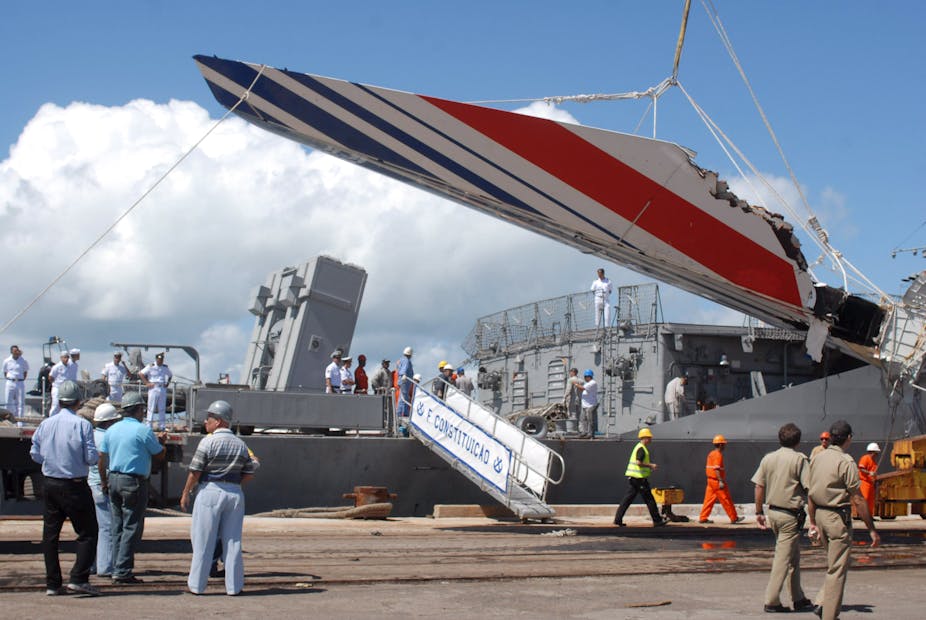It is often said that the true test of a business is how well it copes with crisis and adversity. If that is so, then Malaysia Airlines has spectacularly failed the test.
The airline’s share price has fallen by 8% since the disappearance of MH370, and we can expect it to keep sliding until the company gets its act together. But Malaysia Airlines seems baffled by the negative comments it is receiving. CEO Ahmad Jauhari Yahya feels the criticism of the company from bereaved relatives is “unfair” and says his company has “done all we can within our means to help them”.
The relatives protesting outside the Malaysian Embassy in Beijing would not agree.
When crises erupt, people need three things: information, reassurance and hope. Up-to-date, accurate information as to what is going on and what is being done is absolutely vital. It helps people to realise that they are not alone, that they have not been forgotten, that those in authority understand their plight.
Then, people need reassurance that everything that can be done is being done, and that they will be looked after and not simply left to fend for themselves.
And finally they need hope. Clearly in situations such as this, there is no hope for the passengers themselves and has not been for some time. But bereaved people often speak of the hope that no one in future will have to endure what they are going through, that lessons will be learned and such terrible events will never happen again. There is hope for others, even if there is none for oneself, and that can be comforting.
Contrast the actions of Malaysia Airlines with those of Air France following the Concorde crash at Charles de Gaulle airport in 2000. Senior executives of the company reacted immediately, withdrawing Concorde from service and reassuring relatives and the public in general that action was being taken. They were open, honest and transparent. They did not yet know what had happened, but they promised an immediate and full inquiry; and they delivered on that promise. Nothing could bring people’s loved ones back, but at least there was the comfort of knowing what had happened – and the reassurance that this would not happen again.
Similarly, after the disappearance of Air France flight AF447 in 2009, the company reacted rapidly. Relatives of passengers spoke afterwards of the caring and compassionate way in which the airline broke the news to them, and supported them in their grief. Air France’s share price did decline after both incidents, but not by much and not for long. By taking charge of the situation after the disaster, the airline both honoured its commitments and preserved its own reputation.
Or, let us take the case of Maple Leaf Foods (MLF), the Canadian food producer, some of whose products became contaminated with listeriosis in the summer of 2008. Twenty-one people died and hundreds were ill. MLF’s response has become a textbook case of how to handle a crisis.
CEO Michael McCain took personal charge of the situation, accepted full responsibility for the problem and announced that he and his company would do everything in their power to put it right. McCain went on to hold daily press conferences, and the company set up a website to show what actions it was taking, updating this on a round-the-clock basis. As a result, the public trusted MLF and accepted that the company was acting in their best interests. By 2010 MLF’s market position had been restored.
At Malaysia Airlines, senior officials have mostly been conspicuous by their absence. There is little evidence of a concerted crisis management plan. Instead, the company seems to have abrogated responsibility to the Malaysian government, its main shareholder. The Malaysian ministry of transport hasn’t been much use either, but that does not excuse the airline.
The passengers on MH370 had paid for their tickets. They had a contract with the company. And that means that the company has responsibilities to them and their families, responsibilities it cannot shirk or pass on to another agency. Malaysia Airlines senior executives should have been on the ground at once in Kuala Lumpur and Beijing, explaining, reassuring, condoling – caring.
And because they were not, it is an open question as to when – or whether – people might begin to trust Malaysia Airlines again.

